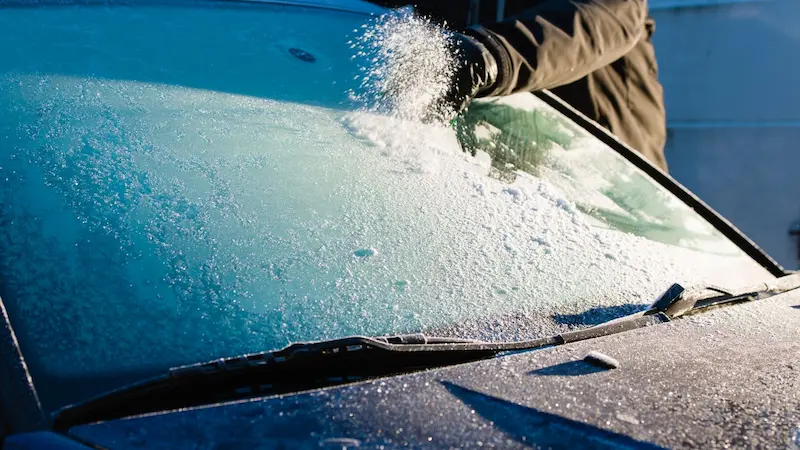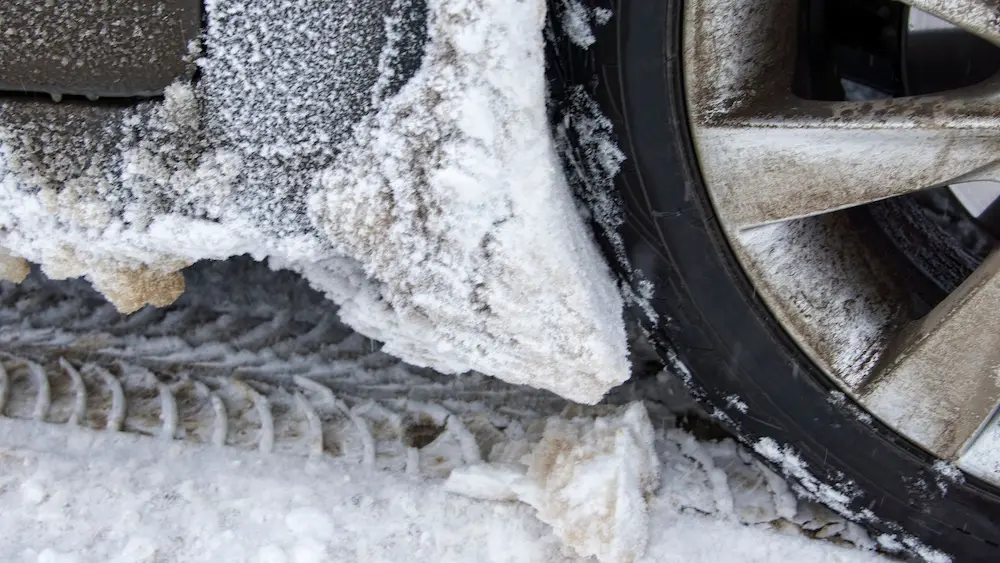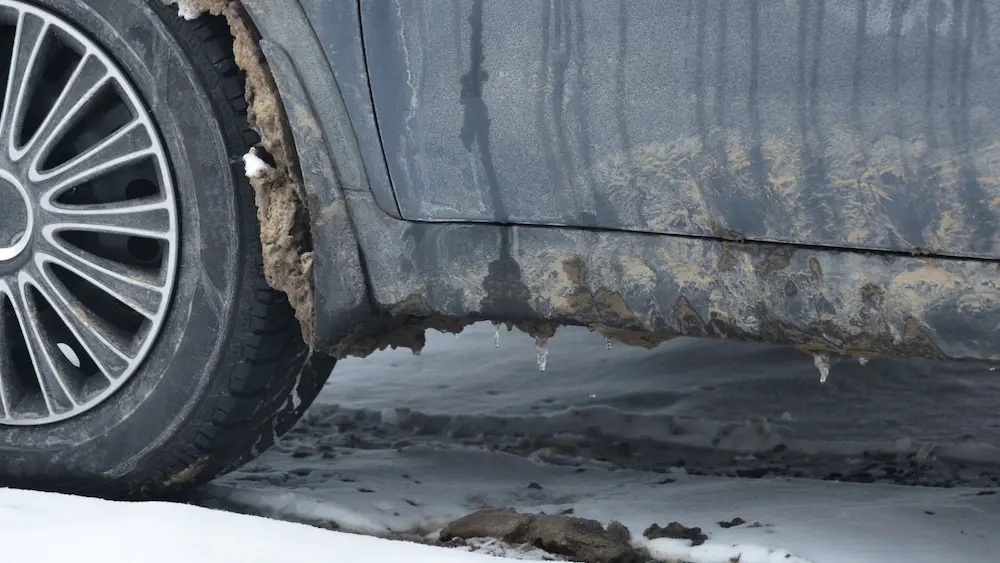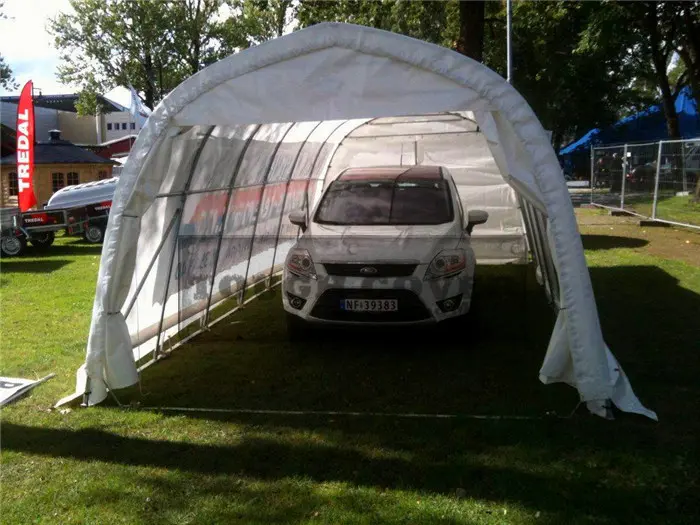Are Garages Bad for Cars? (Pros & Cons)
This post contains affiliate links.
We commonly park our car in the garage to store it. The basic idea is if we keep the car away from the elements, we are protecting the car better. But can this backfire? Are garages bad for cars?
Garages can be bad for cars in some situations. Suppose you drive your car in the snow and then park the car inside a heated garage. In this case, the warm garage will melt the snow and road salt. This may cause your car to rust more rapidly. Consider pressure washing your car undercarriage frequently in winter to prevent rusting.
In this article, we explore if garages are bad for cars. We also explore the benefits of keeping a car in a garage and what to do if you do not have one.
Benefits of Keeping a Car in a Garage
The benefits of keeping your car in a garage include protection from the elements. The extreme temperature may wear out your car faster. You also protect yourself from the extreme temperature outside when you go in and get out of the car.
There is a reason why car garages exist. A garage keeps you and your car protected from the elements.
In fact, keeping your car in a garage is so good insurance companies like it. Some insurance companies even offer a lower policy for vehicles stored in a garage.
Here are some benefits if you keep your car in a heated, or unheated garage:
Protection From The Elements
Suppose you park your car outside. In that case, the car can become too hot or too cold, depending on the air temperature. Your car may also be exposed to hazards that may damage it.
However, when you park your car inside a garage, the temperature in the engine stays stable and does not fluctuate. This is despite the rising or dropping in outside temperatures.
The essential fluids, like the engine oil, will be thinner, too, since they are warmer. This means they lubricate internal parts better. Your battery would work better too, since the battery fluid or battery cells are not under temperature stress.
You also need not remove any snow or ice from the vehicle. This means less chance of scratching the paint job and damage to windshield wipers.
Protection From Crime And Vandalism
Suppose you live in a neighborhood with theft and vandalism issues. In this case, a garage keeps your car out of sight from those planning to steal or vandalize it.
This is because the car is covered up on all sides by a structure, which makes it harder to steal. Compare that to leaving your car on the curb, all exposed to a carjacker.
Aside from carjackers, you may also have people who enjoy vandalizing cars. This is even so when you drive something better and nicer. These people may just use spray paint on your car for fun.
You can sleep easily at night if you park your car in a garage.
Protection From External Damage
Hail, accidents, and falling tree branches are just a couple of examples of ways a car can get damaged from being outside.
Your car can also be unlucky enough to become a victim to someone who does not drive well. Talk about a drunk driver or a teen fresh off his driver’s license.
If you leave your vehicle outdoors, it will pick up lots of damage. These include dents, scratches, or worse, broken windows.
If you have a garage to store your car, you should always park your car inside. Some people use their garage as a storage space and park their cars outside instead. This may not be a good idea.
Your Car Starts Easier In Cold Days
Suppose you park your car outside in cold weather.
You must first brave yourself out in the cold to reach the car. The car is all snowed out. You have to pick up a shovel to clear the pathway for the car. Then you sweep away the snow from your windscreen and door.

Once you are in, everything is cold to the touch. The seats, steering wheel, door, and dashboards are cold. You try hard to start the car, but the car would not cooperate.
Again, you braved the cold. You got out of the car and struggled to open the car hood since you had gloves on.
You check your car with your cold, shivering hands, only to notice that the battery is weak. The cold temperature it was exposed to overnight must have sucked out the voltage. Now you must get a spare battery and replace the one in your car.
Then it takes you several cranks to get the car up. However, since it is so cold, you decided that you would turn the heater on full blast. Then you run back to your house to warm up for a few minutes.
Then you run back to the car before you can now drive out.
If you think about it, the whole process of starting and warming the car can take some time. Could it be 20 to 30 minutes?
Why go through so much trouble and fuss? If you park your car in a garage, it would be a massive time saver.
You do not need to brave the cold to get into the car, and your car battery should be able to perform well. You should be able to start your car easily too. If your garage is insulated, your car engine will not be too cold. That means your heater will heat up your car cockpit much faster.
READ MORE: Insulating the garage
Is It Better To Keep Your Car In The Garage?
Overall, it is better to keep your car in a garage. The garage protects your car from the weather and keeps them in good condition. The key, however, is to ensure you clean the car. Focus on the undercarriage and wheel wells.
Cars generally do not need to be garaged but benefit from it.
This is because many car makers already expect their cars to be parked outdoors. As a result, they installed some systems to help the car operate in harsh weather conditions.
For example, most cars have block heaters to keep the engine warm enough to start them in cold winters.
However, keeping your car in the garage helps to protect your car in many ways too. Your car’s exterior may be in better shape if you store and park your car in a garage.
The garage protects your car’s paint and finishes from summer ultraviolet or UV damage.
These UV rays are responsible for causing issues such as fading interior and body color. Plastic, rubber, and painted parts all degrade under exposure to UV light from the sun.
During winter a garage keeps your car safe inside during winter storms. In the morning, your car will not be covered with snow, ice, and frost. When exposed to the elements, a vehicle’s parts will deteriorate faster.
However, there is one way keeping your car in a garage can hurt your car.
During the winter, you may have snow on the road. This means you will also see the municipality pouring salt on the road to melt them.

When you drive your car on this surface, your undercarriage and wheel well will pick up this snow, mud, and salt.
If you park your car outdoors in the winter, the mud, salt, and snow freeze into lumps. This way, they are less harmful to your car.
However, if you park your car in a warm garage, the snow, salt, and mud melt. Your car’s undercarriage and wheel well may rust. If your garage is kept warm during the winter, you may also exacerbate the rusting.
Therefore, suppose you plan to keep your cars in the garage during the winter. In this case, consider giving the undercarriage more frequent cleaning. This should wash away the salt, mud, and snow.
Do Cars Last Longer in a Garage?
Generally, cars do last longer in a heated or unheated garage. The car is protected from outdoor conditions that may wear it down faster. However, rusting may be an issue with garaged cars, which may lessen their operational life.
Storing your car in a garage protects it from damage from the environment. The sun, rain, and snow can wreak havoc on your vehicle’s surfaces, such as the body and dashboard. The extreme summer heat and winter frost could also wear down many parts of your car.
As a result, your car will last longer.
However, there are times when storing your car in a garage can wear down your car’s service life faster. The culprit? Rusting.
Here’s how:
- Suppose you drive your car in a snowy place during the winter months. In this case, your car’s undercarriage will pick up snow, mud, and salt from the roads.
- The salt-filled snow and slush that sticks to your car are bad, but it’s not that serious if it remains frozen.
- However, when you park your car in the garage, the slush can melt from the engine’s heat even if it isn’t heated.
- The water from the melted slush increases the rust-causing properties of the salt. That can lead to additional rust damage than if the car remained outside.
- During winter, your garage may not be as well-ventilated since you may close the windows to keep the place warm. This means the moisture from the mud and snow does not evaporate away easily.
- That means your car can be wet for longer periods than dry. That prolonged wetness gives salt more time to do its dirty work. The rusting process may become more intense.
Fortunately, there are ways you can manage this. Start by ensuring your car’s anti-rust coating is in good condition before winter. If it is not good, consider getting one applied at a body shop.

During winter, consider pressure washing your car’s undercarriage and wheel wells. Do it once every few ways. This helps to wash away the excess salt and mud, which can prevent rusting from happening.
Ways to Protect Your Car Without a Garage
To protect your car without a garage, consider purchasing a portable carport. Regularly wax or ceramic coat your car to protect its paint. Avoid parking under trees if you can, and you can also build yourself a simple carport.
As much as a garage is very beneficial to your car, not all of us have a garage. You may have one yourself, but you have converted it for other use, and you now do not have a space to park your car indoors.
Fortunately, there are many other options to protect your car without a garage:
Portable Carport: Many tents, tarps, and other coverings are available for car owners. They are quite affordable and can protect your car quite decently.
Basic carports protect your car from the sun and snow. Really good ones can even insulate your car, meaning you can put a portable heater and keep the car warm inside.
Wax or Coat Your Car: Keep paint in good shape with ceramic coating. This will help protect your car’s paint and body from the weather. If that is too expensive, consider regular waxing instead.
Anti-Rust Coatings: Ensure you have anti-rust coatings applied to the undercarriage of your car. The coating will help to prevent rusting and extend the life of your vehicle. You can always get a layer applied at the local auto body shop.
While you are there, also have the technician check the body panels for paint chips. Rusts can also start to form from there too.
Sunshades or Tinted Windows: These are easy ways to reflect sunlight out of your car. Tints can also keep the interior cool and comfortable. They are also affordable, which makes it easier for you.
Park Safely: Avoid parking under trees. Trees could drop leaves, sticks, and other debris onto your car. Aside from leaves and branches, birds may rest on these trees and then drop their poop on your car.
Build A Carport: If your house has a space, consider building a carport instead. These are open-air car parks with the roofing on top. It may not keep out the cold, but at least your car would not be snowed or cooked under the sun.
Aside from carports, there are also many other garage alternatives. Check them out in this article.







